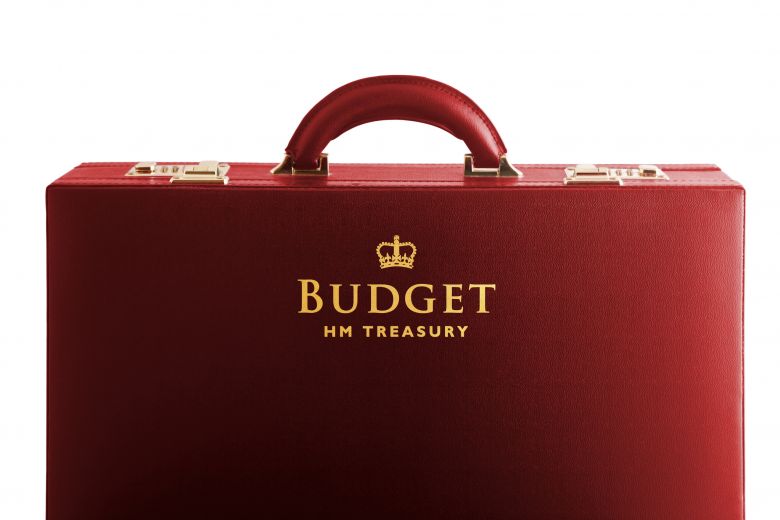We’ve broken down the most important changes for car owners and motorists. Read more to find out the impacts from 2025 and beyond.
Fuel Duty
In a surprise move Reeves has confirmed that fuel duty will not increase for at least another year, and confirmed that the existing 5p cut in duty (brought in by the previous Conservative Government in 2022) will remain in place.
Reversing those measures would have added a further 7p to the price of fuel from 1 April 2025. It was widely expected that fuel duty would rise as a boost to the Treasury, but it will now remain at 52.95p per litre.
In announcing the freeze Reeves said “I have concluded that in these difficult circumstances while the cost of living remains high and with a backdrop of global uncertainty increasing fuel duty next year would be the wrong choice for working people.”
RAC head of policy Simon Williams said drivers will "breathe an enormous sigh of relief" at the news after much speculation to the contrary.
“It’s good to see the Government firmly recognising the importance of the car to millions of households up and down the country", he continued. "Eight-in-10 drivers tell us they are dependent on their vehicles for the journeys they need to make, while 70% of commuters who live in rural areas have no other feasible alternatives to get to work beyond taking the car.
“It’s also worth remembering that even as of today 56% of the total price of a litre of petrol is already tax in the form of fuel duty, and the VAT that is charged on top.”
- Find the latest petrol and diesel prices with RAC Fuel Watch
- Car won't start in the cold? Possible causes and preventative tips
- What to do if you have a flat battery
Road Tax (VED)
First year Vehicle Excise Duty (VED) rates for new cars have been overhauled, with significant rises for certain vehicles from 1st April 2025. According to the Government, the measures have been designed to “strengthen incentives to purchase zero emission and electric cars” by “widening the differentials between zero emission, hybrid and internal combustion engine (ICE) cars.
The biggest news is the ten-fold increase in first-year car tax rates for cars emitting between 1-50g/km of CO2, which includes hybrids. These will increase from the current rate of £10 for petrol and diesel cars (or zero for hybrids) to £110. The vast majority of plug-in hybrid cars fall into this band.
Rates for new cars emitting between 51-75g/km of CO2 will increase from £30 (or £20 for hybrids) to £135. All other rates will double next year, meaning the owner of a new VW Golf 1.5 TSI will pay an extra £220 in the first year. By contrast, a new BMW X5 M60i will have £2,745 added to the cost of the first-year rate.
Standard VED rates for beyond the first year will rise in line with the Retail Price Index (RPI) as is usually the case. The Government will “consider raising” the threshold for the current Expensive Car Supplement for electric cars “only at a future fiscal event”. Currently cars of any type costing over £40,000 when new are liable for an extra £410 a year VED charge for five years after registration.
Furthermore, Benefit-in-Kind tax rates for company cars will be maintained at 2% until 2026. Double-cab pick-ups will also be treated as cars for capital allowances, Benefit-in-Kind taxation and deduction from business profits from April next year.
Infrastructure and car industry funding
The Chancellor has announced a £500 million increase in road maintenance funding from April 2025, said to culminate in an extra million potholes being fixed annually.
RAC head of policy Simon Williams: “This is positive news for drivers as it should enable cash-strapped local authorities to begin the process of improving the quality of their roads.
“But it’s vital councils don’t just use the money to fill potholes as this is unlikely to deliver the long-term benefit drivers so badly want to see. We believe greater use of preventative maintenance is essential. Surface dressing roads at regular intervals is a proven, cost-effective way of ensuring potholes don’t appear in the first place, along with resurfacing the worst affected roads.”
£200 million will also be set aside to invest in the roll-out of further EV chargers across England. However no measures will be introduced to help accelerate the take-up of electric cars for private buyers, something the Society of Motor Manufacturers and Traders have repeatedly called for.
A further £2 billion has been confirmed to support the automotive sector to “support our electric vehicle industry and develop our manufacturing base”. The specifics of this are currently unclear.
Fuel prices
The Government will also introduce a 'Pump Watch' mandatory fuel price publication and monitoring scheme from the end of 2025. While this has been mooted before, it's the first time a date has been set.
RAC head of policy Simon Williams said: “It’s fantastic to see the Government has now said it will introduce the Pumpwatch scheme and fuel price monitoring function by the end of next year as this is something we’ve long been calling for.
"This will help drivers get a fairer deal every time they fill up by enabling them to find the cheapest fuel near them and ensuring significant reductions in wholesale fuel prices are passed on to customers at the pumps.”
What do you make of the Autumn Budget 2024? What would you like to see change in 2025's budget? Leave your thoughts in the comments section below.

RAC sale – up to 33% off*
• Roadside cover from £5.29 a month†
• We get to most breakdowns in 60 mins or less
• Our patrols fix 4/5 breakdowns on the spot











